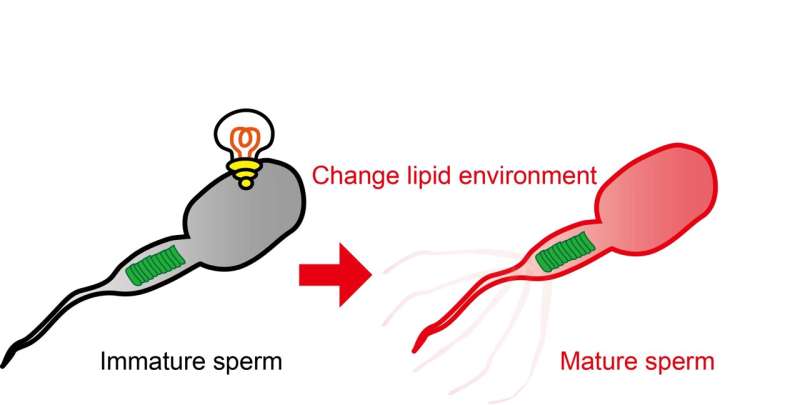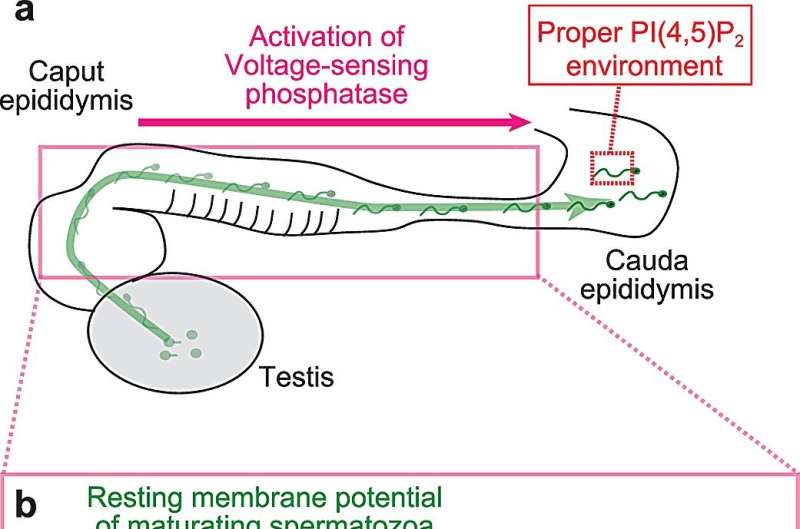This article has been reviewed according to Science X's editorial process and policies. Editors have highlighted the following attributes while ensuring the content's credibility:
fact-checked
peer-reviewed publication
trusted source
proofread
Study shows an electrically-activated protein regulates spermatogenesis

Frankenstein's monster was brought to life by the judicious application of a little electricity; and a surprising number of processes in our bodies are regulated by electrical currents too. Now, researchers from Japan reveal that electricity may play a key role in male fertility.
In a study published in Nature Communications, researchers from Osaka University reveal that a protein whose activity is dependent on electrical signals plays a crucial part in sperm development. The paper is titled "The significance of electrical signals in maturing spermatozoa for phosphoinositide regulation through voltage-sensing phosphatase."
Sperm go through a developmental process as they move through the male reproductive system that allows them to mature and acquire the ability to fertilize an egg. Part of this process involves changing the types of lipids, or fatty molecules, that are present in sperm cell membranes. These changes are enacted by enzymes, which have to be activated at a specific point in the sperm development timeline.
"We recently identified the functional expression of an unusual voltage-sensing phosphatase (VSP) in spermatozoa. This unique protein shows phosphatase activity in response to changes in cell membrane potential," says lead author of the study Takafumi Kawai. "However, it remained unclear whether VSP senses the membrane potential of spermatozoa, and if so, how this affects spermatozoa maturation."

To explore this, the researchers eliminated VSP expression in mouse sperm. They then evaluated the lipid content of the sperm cell membranes at different stages of sperm development in the cells without VSP compared with cells with VSP.
"The results were very clear," states Yasushi Okamura, senior author. "In the absence of VSP, the certain membrane lipid composition was not completely matured in spermatozoa, suggesting that VSP is required for proper spermatozoa development."
Next, the researchers created a mutant version of VSP that changed its responsiveness to electrical stimulation and tested the effects of this mutant in mice. Compared with normal mice, sperm from the mice expressing the mutant protein were noticeably abnormal in motility.
"Our findings show that, in developing sperm, VSP responds to electrical signals by promoting appropriate maturation of the cell membrane," says Kawai.
Given that proper sperm development and function are crucial to male fertility, the findings from this study could be used to help develop clinical treatments for infertility in the future. In addition, investigating the unique mechanism by which VSP converts electrical signals into chemical signals is likely to provide new insight into cell development.
More information: Takafumi Kawai et al, The significance of electrical signals in maturing spermatozoa for phosphoinositide regulation through voltage-sensing phosphatase, Nature Communications (2024). DOI: 10.1038/s41467-024-51755-2
Journal information: Nature Communications
Provided by Osaka University
















